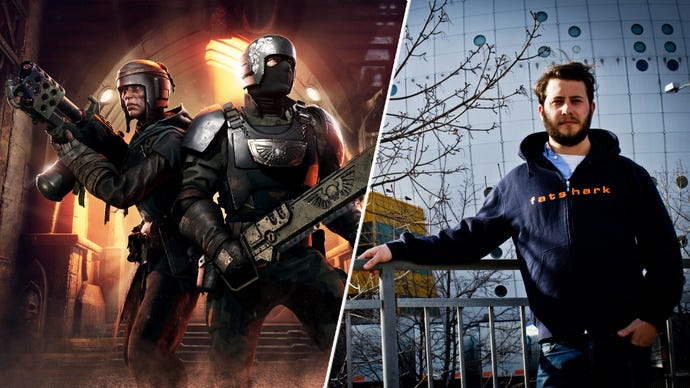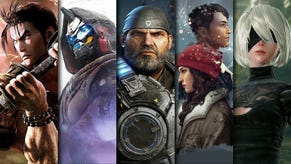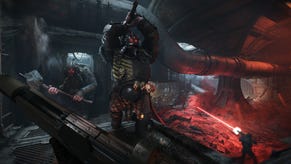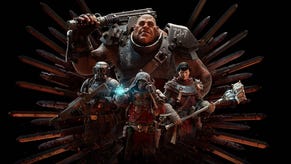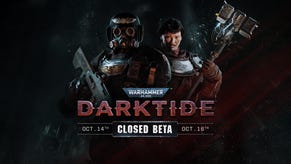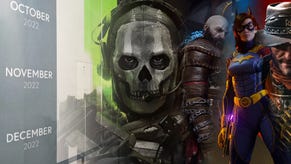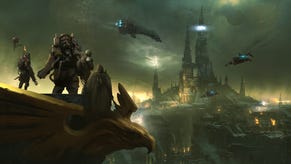Warhammer 40K: Darktide dev reveals why the Xbox version took so long – and the personal pain of "Xbox when?"
Fatshark wants Warhammer 40k: Darktide to be the game you never want to uninstall, and the Xbox launch/Patch 13 is only the beginning of that new era.
It seems like Warhammer 40,000: Darktide never truly got its moment in the sun. Its late 2022 release was highly-anticipated, but circumstances leading up to the launch, the subsequent (and seemingly indefinite) delay of the Xbox version sort of made it start on the back foot.
It didn’t help that, once players got their hands on the game, they ran into myriad problems: performance issues on PC, lack of cross-play between Steam and Game Pass, and a stacked in-game store with the same sort of prices you’d see in a free-to-play game were just some of them.
All of it painted a really grim, cynical picture – especially coming from Fatshark, one of the most player-friendly developers in the business. But it’s been nearly a year, and Darktide is a much more confident game, and a more a compelling product.
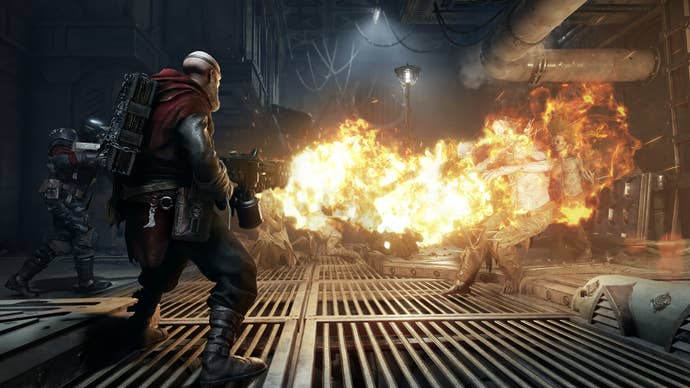
After spending a couple of hours playing an early PC build of Patch 13, I got a chance to speak to Fatshark.
And there was no way I wasn’t going to start with the Xbox Series X/S version. Though initially set to launch alongside PC, all mention of Xbox vanished. Every few months, Fatshark would announce an official delay, but the lack of clear information made things worse.
“It was a last summer when we decided to delay the Xbox [version]. It was a really, really tough decision, but I think in hindsight, it was the right decision,” design director, Victor Magnuson, told me.
“We would have hurt the game a lot if we would have tried to do a simultaneous release at that time.
“[Personally], it has hurt very much. Everytime we release something and I just read the comments, [it’s] ‘Xbox when’, and stuff like that. It's not easy.”
.jpg?width=690&quality=70&format=jpg&auto=webp)
Game performance was one of the main culprits. Fatshark’s games are typically very CPU-heavy, due of the sheer numbers of enemies that get thrown at the player, and the way the game’s AI works in the background to maintain a certain level of challenge.
Anyone who played the PC release at launch will tell you how severely CPU-bound the game was, and consoles are not known for having the most powerful CPUs, so it didn’t make sense to launch the game on Xbox and face yet another backlash.
“We felt that there's no reason in bringing in new players until we fixed a lot of these problems and also made the version as good as possible,” Magnuson added.
The wait was made worse because of how poorly the delay was communicated to players. It felt like a constantly moving target, and not a set date you could mark down and check back closer to it. Something Magnuson is acutely aware of.
“I think we were very afraid of giving false promises,” Victor Magnuson explained. “So we were waiting [until] we felt very, very sure that we were actually able to release on that date.”
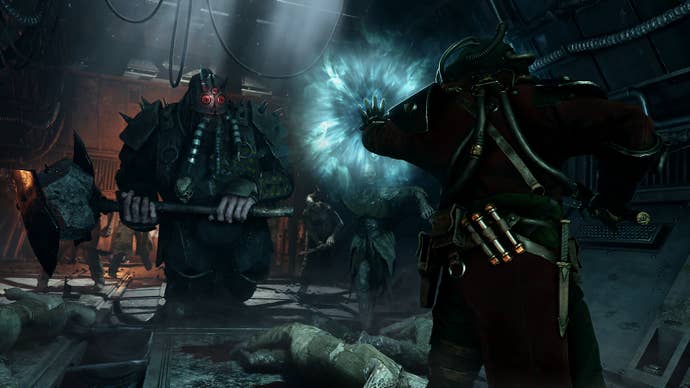
Juan Martinez, executive producer, also suggested that the team was overwhelmed with the work that needed to be done to the PC version. Developing 13 major patches while optimising for the Xbox port takes a lot of time, so Fatshark made the decision to focus on the issues at hand before bringing another platform into the fold.
“It would have been awesome to communicate more and better. The power of hindsight makes that painfully obvious,” Martinez told me. “[But] with the launch that we had, we [needed to take] a step back and sort of rethink our plans in a way.”
“I've been tempted so many times on Facebook/Twitter posts to go in and say, ‘It's coming, don't worry!’” Magnuson added.
That experience has taught the developer to be cautious about what it announces, and when. During the interview, I couldn’t get the leads to commit to a roadmap that tells players what they can expect down the road – even if it’s clear that Fatshark is working on more content for Darktide.
Magnuson did bring up the issue of dedicated servers for Vermintide 2, though, a feature the studio promised (and was in the works for a while, but didn’t end up seeing the light of day).
“We are really cautious of promising things that we can't deliver on,” said Magnuson. “We have done that mistake previously – dedicated servers for Vermintide 2 is an example.”
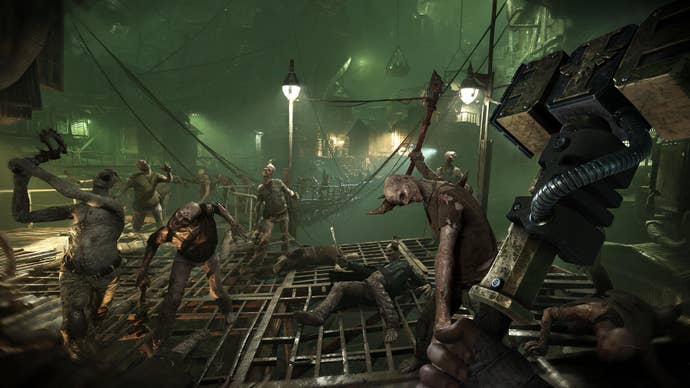
What about paid expansions? Vermintide 1 & 2 received their fair share of post-launch, paid content. Fatshark wouldn’t say if Darktide would follow suit, reminding me that the 40K game has other forms of monetisation, such as the in-game store selling paid cosmetics.
“Right now, our monetisation is premium cosmetics,” Magnuson explained. “I'm not saying [paid DLC] is impossible. But right now, that is how we monetise the game. And of course, [selling] the game.”
The topic of paid cosmetics was an especially thorny one for Darktide, not because of their existence, but in the way they were implemented. The in-game store was there at launch, just as players were beginning to realise that the game was lacking in a few key areas. It left a bad taste in players’ mouths, but taught Fatshark some valuable lessons.
“Yeah, we we fumbled the ball there a little bit,” admitted Magnuson. “But we we've addressed it since then.”
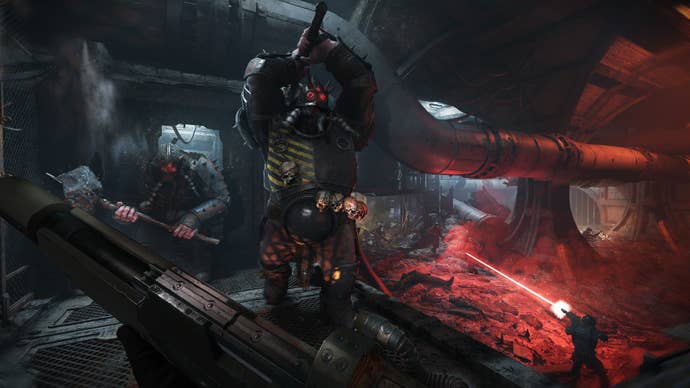
But whether the money comes from skins, potential paid expansions, or straightforward game sales, Fatshark isn't abandoning Darktide. In fact, the team is only emboldened to develop more wide-sweeping changes if they make sense for the game.
“We see no end for this game,” Magnuson said.
“We will not be afraid of doing things like [the] class revamp, where we completely rethink a system and do something really new. I actually think this has sort of made us very eager to do these types of things, where we go and do things that players never expect us to do.”
In this age of live service, FOMO-driven games, it was great to see Magnuson and the team have a healthy approach when it comes to keeping players engaged.
“We want this to be a destination game,” he added. “I don't see Darktide as a game that you play constantly, but we hope it's a game that players pick up every once in a while and come back and play for a week or two or three or whatever.”
Having never uninstalled Vermintide 2 until the moment I sold my PC, I know exactly what he was talking about. In fact, the four-year-old game is getting a new career for one of its classes in just a few days. This is exactly why it didn’t make sense to uninstall it, because I’d inevitably get invited to a game whenever new content drops, and I can totally see that happening with Darktide now that it’s found its footing.
